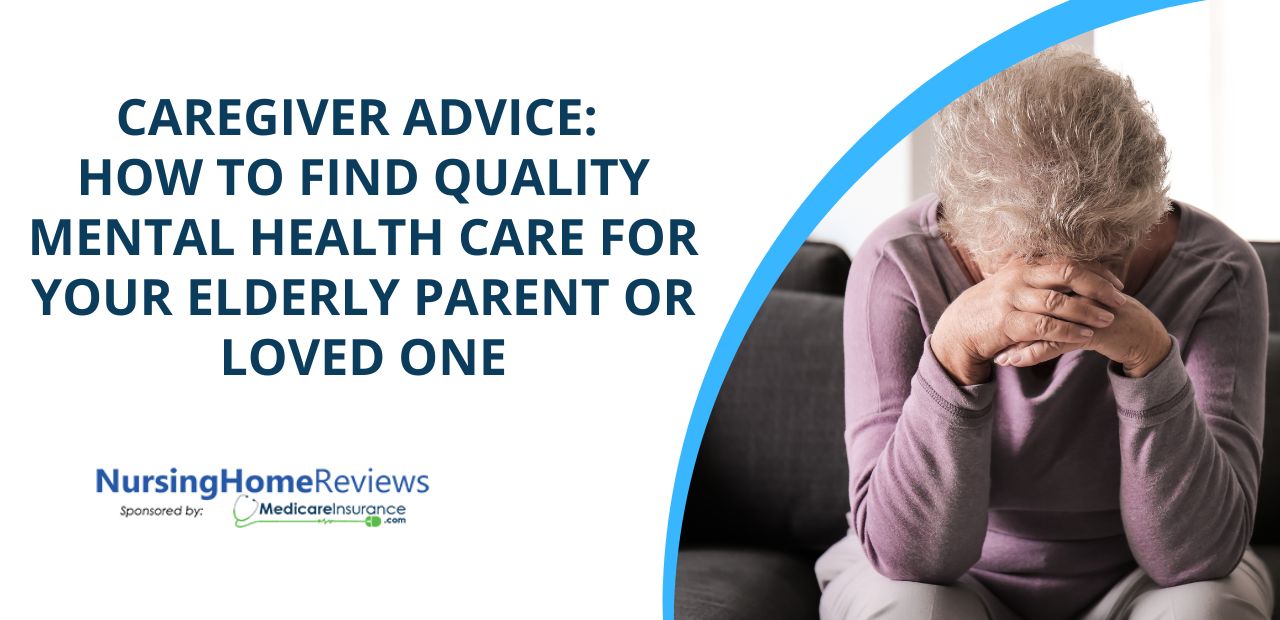
Your Mental Health Can Greatly Affect Your Physical Health
As the caregiver of a senior, you know how important it is to keep them healthy and safe. However, in helping your senior loved ones maintain their physical health, you may be overlooking something important.
Mental health care for elderly parents is just as important as physical health care. Senior mental health can decline rapidly as you reach retirement age. Put yourself in the shoes of a senior, and consider the following:
- Loss of cognitive abilities
- Lack of social support
- Loss of strength, coordination, and dexterity
- Diminished physical capabilities
- Loss of loved ones
- Fear for the state of the world
It’s very easy to see how senior mental health can falter quickly, even in what are considered the golden years. Unfortunately, in many cases, mental health care for elderly parents can fall to the wayside for a variety of reasons. For example, your parents may tell you that everything is fine when it really isn’t. They may refuse help, and if they’re technically of sound mind, many providers may not see an emergency, even as one is brewing.
If you’re caring for a mentally ill elderly parent, you know how difficult it can be to get them the help that they need. Thankfully, there are senior mental health services available to help lighten the burden. In this article, we’ll discuss finding excellent mental health care for your elderly parents.
Common Senior Mental Health Issues
Declining mental health is a silent struggle for a lot of seniors, including your own elderly parents. The current state of the world has led to challenges for seniors in general. For one, current political, social, and financial issues have led to an increase in the decline of senior mental health worldwide.
Senior mental health issues can range from relatively mild conditions to devastating and severe cognitive illnesses. Some of the most common mental health issues that senior citizens often deal with include:
- Anxiety
- Depression
- Affective disorders, such as Seasonal Affective Disorder
- Isolation
- Cognitive illnesses, such as dementia
Your elderly parents may already take medications for their mental health issues. When unmonitored, mental illness can lead seniors to abuse their prescribed substances. Your parents may believe that self-increases in dosage may take care of the issue altogether. In fact, it leads to bigger issues.
Find a caring home for parents dealing with Alzheimer's and dementia.
Start your search today.

Substance Abuse and Seniors with Mental Health Issues
Substance abuse is something to watch out for when you’re caring for aging parents with mental illness. Seniors who have been prescribed medications for mental health disorders may begin using their medication more frequently to “feel better faster”. Seniors who are not undergoing treatment for mental health issues may turn to other drugs to numb what they’re feeling.
If you suspect that your elderly parents are abusing substances, it’s important to act quickly. In certain instances, such as patients with dementia attempting to manage their own medications, they may not be aware of what they’re doing. Some of the signs you’ll want to look out for if you suspect seniors of substance abuse include:
- A noticeable decrease in hygiene
- Their eating habits have changed
- Sudden, unexplained chronic pain
- They may cut off contact with loved ones
- They are no longer as interested in social activities
- Sleeping habits have changed
It’s important to note that, while these tend to be common indicators of substance abuse, it presents differently in everyone. These symptoms are also comorbid with many mental illnesses and disorders. If you do suspect mental health or addiction issues in senior loved ones that you care for, address the matter with them in a non-confrontational, understanding manner. Never outright accuse, but let them know your concerns.
Mental Health Treatment for Elderly Parents
Convincing a mentally ill elderly parent to seek treatment for mental health or substance abuse issues is never easy. However, it’s key to helping them live a happy, well-rounded, and completely healthy life in their golden years. There are many treatments and senior mental health services available for your loved ones.
A major objection that seniors tend to make to getting treatment for mental health disorders is that they’re expensive. While it’s true that many treatments and services for mental health are costly, Medicare coverage can help your loved ones cover the steepest part of the cost.
If your loved ones are Medicare beneficiaries, their plan likely covers many of the services that they may need to get their mental health back on track. Some of the mental health services for seniors that Medicare will provide coverage for include:
- Talk therapy services
- Telehealth services
- Initial and ongoing assessments of senior conditions
- Substance abuse counseling
- Screenings for alcohol misuse

Caring for Aging Parents with Cognitive Illnesses
Taking care of aging parents is not an easy task. It can be especially difficult caring for parents who are dealing with progressive cognitive illnesses. If you’ve never dealt with someone who has been afflicted with Alzheimer’s or dementia, you may feel lost and unsure of how to care for them.
We’re here to let you know that it’s okay to seek out advice for Alzheimer’s caregivers, or advice for dementia caregivers. Whether you speak with a therapist on your own, consult with a loved one’s healthcare provider, or seek out support groups, it’s important to know that you’re not alone. Looking for advice for Alzheimer’s caregivers and advice for dementia caregivers will allow you to better assist loved ones with these illnesses.
Balance is Important
When you’re caring for aging parents with mental illness, it’s very easy to let your own health slip. As a caregiver, you must acknowledge that, yes, you still need time for yourself. It’s okay to step away from the caregiver role for a moment and allow yourself to breathe!
Talk therapy, meditation, and engaging in hobbies are all great ways to keep yourself centered and healthy. If your parents insist on aging in place and you are their main caretaker, maintaining your own physical and mental health still comes first. If your own mental and physical health is slipping, it makes it tougher to be there fully for your parents.
In some instances, the best thing you can do is speak with your parents about transitioning to a long-term senior living facility that’s better equipped to deal with their condition, or conditions. This doesn’t mean that you’ve stopped being a caretaker. You’ll still be very involved in the care of your loved ones! You’ll just have more help to ensure that they get what they need, and that can be more beneficial than you realize.
Make sure your loved ones will get the expert care they need in their new home.
Check ratings and violations.
References:
- Depression and Aging: Senior Mental Health Issues
- Resources for Families Coping with Mental and Substance Use Disorders
- How to Take Care of Elderly Parents with Mental Illness
- Family Members and Caregivers | NAMI: National Alliance on Mental Illness
- Caregiver Advice: Taking Care of Your Mental Health





